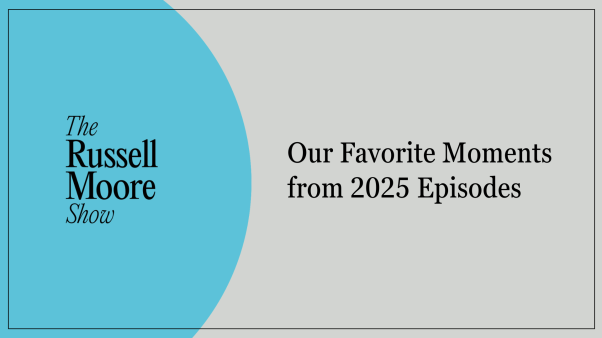I was raised in a staunchly atheist household. We never went to church. We never had a Bible. We never talked about God. My father was such an ardent atheist that he demanded my mother spell my brother’s name, Mathew, with only one t to avoid any biblical resemblance. My father then named me Mark. Clearly he didn’t see the irony.
I heard about Christianity for the first time at a summer camp when I was nine years old. I was fascinated by the concept of God. Not enough to get me to attend church or read a Bible or whatever else “religious” people did but enough that I found myself going back to the camp every year, talking about God again, and then coming home to a very different life. You could sum up that life as follows: Stealing from cars, stores, the purses of my friends’ mothers—from anywhere we could, really—to get money for drugs, partying, and everything else you do when you don’t have God in your life.
The first time I did drugs, I was eight or nine years old. A guy from our neighborhood cooked up some hash and weed for me and some of my friends behind the local convenience store. By ninth grade, drugs were a daily part of my life. At one point, I took drugs that were laced with something dangerous, and my friends watched in horror as I lay in the middle of the street, eyes sparkling, skin gone cold pale.
What Do I Believe?
My parents divorced when I was eight years old. Shortly thereafter, I acquired a neuropsychiatric disorder called Tourette syndrome, which later developed into obsessive-compulsive disorder. I would adopt a habit—a twitch or a particular noise—and I would do it over and over again for months until another habit came along. I would pound my hands together a specific number of times, swear out loud, or smack my face, among other odd gestures. Without performing these routines, I was convinced that something bad would happen to me or the people around me. It all sounds crazy now, but it was the reality for much of my life. No outside observer ever would have guessed that I’d become what I am today—a pastor. People tend to avoid churches where the preacher drops the F-bomb every few minutes.
My father was a classic deadbeat dad. He couldn’t hold down a job, and he didn’t know how to raise my brother and me. He divided his time between drinking and yelling at football games. He died of lung cancer when I was 15. I never got to say goodbye to him, as he never told us he was sick. He was 47 years old. There were 18 people at his funeral.
As I stood over his casket, questions flooded my mind. Sitting in that very lonely funeral home, pondering where exactly my father was, I asked myself: What do I believe? About God, myself, heaven and hell, science? What do I believe about eternity and morality and my father? Where is he? What is he now?
When I was 17, I met a guy named Chris, a former drug dealer at my school who had become a follower of Jesus. Having been on the verge of starting to sell drugs myself, I was intrigued by his life, his questions, and his passion for God. We met in woodworking class. He challenged me to examine my doubts, read the Bible, pray, and think about the implications of what I believed about life and God. In that crucible, I knew I would either lose the small amount of faith I had possessed since my days at summer camp or it would explode and change me.
I began to study about and wrestle with the existence of God, scientifically and philosophically, and questions of suffering and evil that came from my own experience (especially my sickness and the loss of my father). I wrestled with the reliability of the Bible, the legitimacy of miracles, and the dark history of the church—filled as it was with judgment, violence, and hypocrisy. I wrestled with the doctrine of hell and how God could allow my father—who, to my knowledge, never became a Christian—to go to a place of everlasting torment, since this didn’t square with my understanding of justice, love, or the character of Jesus. The more I explored, the more I saw the emotional power and philosophical soundness of Christianity.
The year I met Chris, I gave my life to Christ and began a journey of total transformation. The most powerful catalyst was the Bible itself. I spent two years reading the Bible outside my school or at local parks, smoking half a pack of cigarettes while trying to memorize the Sermon on the Mount or the first few chapters of Romans. I started telling people about Jesus while walking around my town at all hours of the night. I would pray for people as they sat on their front porches crying or after a fight with a spouse. I would walk up to total strangers as they partied and drank in the local parks and strike up conversations about faith and God. I felt like I had been set free from all the shame, guilt, and powerlessness I had known growing up, and I was confident others would want that freedom too. I baptized people who had given their lives to Jesus—sometimes in the middle of the night. This was two years before I even got baptized.
The Final Step
During this time, however, there was one step I could not bring myself to take: attending a church. It’s ironic to think of this reluctance since I’m now a full-time pastor. But back then, I was both disinterested and even a little afraid. I thought it would be like all the movies I had seen: an old, boring building smelling like mothballs with an old man preaching up front from a big dusty Bible. But then a friend convinced me to go. I arrived, and it was exactly like that! But I stayed anyway. I’m not really sure why—I guess because I found others like me, wrestling in the place where faith and skepticism meet.
Sure, there were people who recoiled at my very unchurched ways. (At the time, I smoked heavily, swore like Will Hunting, and sported baggy pants with a wallet chain—in case anyone wanted to steal my five bucks.) But others leaned into me: a youth pastor who gave me an early preaching opportunity, a college professor who encouraged me to give my first lecture, and a group of fellow new Christians who indulged my appetite for exploring big questions. We would drink coffee late into the night, debating how many angels could dance on the head of a pin.
People often ask me where my passion for defending Christianity comes from. I trace it back to how I became a Christian in the first place. It isn’t uncommon to grow up the way I did, in an exclusively non-Christian social world. A world where if you believe something with conviction that those around you reject, you have to test it so you can defend it when challenged. As a longtime doubter myself, I delight in showing other doubters that Christianity is real—historically verifiable, philosophically compelling, consistent with science, and full of satisfying answers to our deepest questions about life’s purpose.
There is risk and adventure in embracing Christianity. But if we are willing to doubt our doubts, challenge our disbelief, and lean into—not away from—our wonder, we may find out that there really is something behind the veil.
Mark Clark is the founding pastor of Village Church in Vancouver, Canada. He is the author of The Problem of God: Answering a Skeptic’s Challenges to Christianity (Zondervan).
Did this testimony resonate with you? Let us know here.











